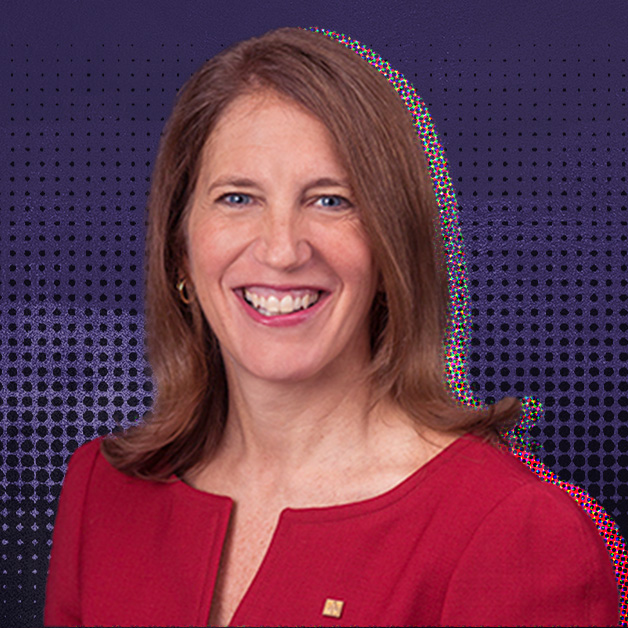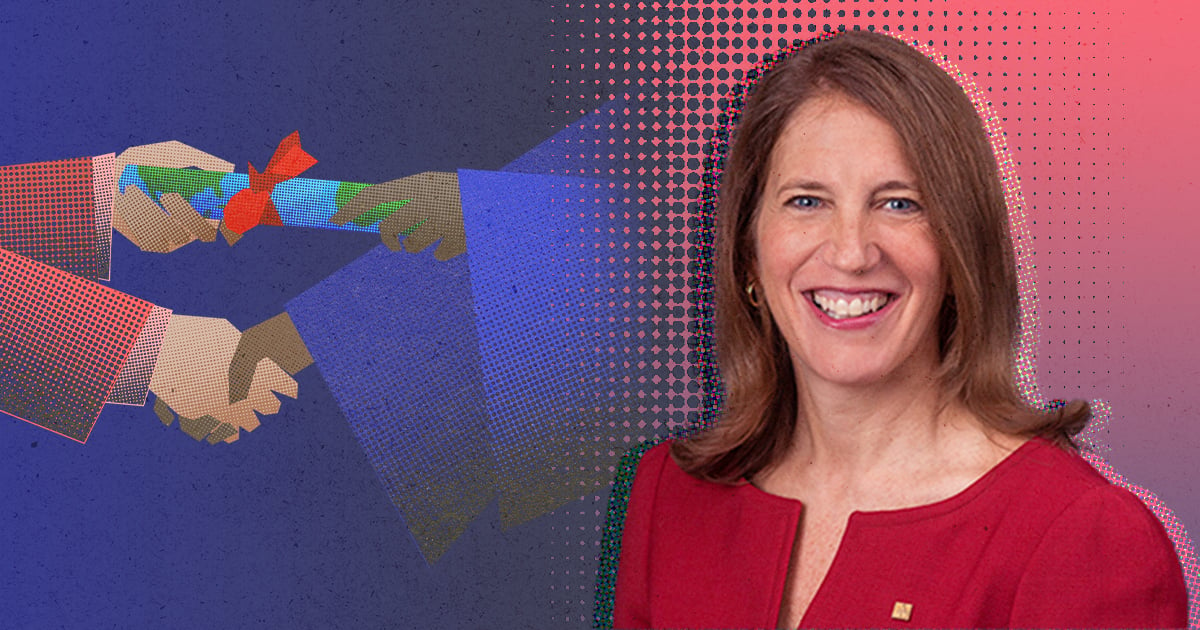
Sylvia Burwell
President, American University
The global economy has experienced several tectonic shifts in the last 50 years, including one driven by the revolution in information technology, telecommunications, and the Internet. Many experts believe that the climate crisis is creating yet another dramatic change. How we navigate that change will become a defining challenge of our time.
This new paradigm is forcing leaders across the globe to adapt in ways that will ensure we can both protect our planet and create a thriving, dynamic economy. Finding solutions requires bold steps.
Young people are at the forefront–the next generation sees clearly how the actions we take now have consequences that could define both their future and the future of our planet. Business leaders around the world are also elevating the issue–customers, employees, and other stakeholders are pressing them to prioritize sustainability.
The world of business is responding and changing. Success is no longer defined simply by maximizing profit. Businesses are increasingly focused on how the climate impacts their business and how their business impacts the climate. At the same time, businesses also are starting to recognize that sustainability also must include diverse boards and leadership, supply chain adaptations, and impacts on diverse communities.
Yet, as the Financial Times reported, businesses are finding it increasingly difficult to find enough leaders with the skills necessary to help them build a sustainable future. In fact, a recent LinkedIn report predicts that demand for green talent outpaces supply, and the talent gap appears to be growing.
At American University, sustainability is a culture that’s visible across our campus. We have made bold investments, infusing sustainability into our DNA–from our 84-acre campus that’s an accredited Arboretum and Public Gardens to green buildings that use energy-efficient technologies and our focus on human health. Sustainability is part of our curriculum, research, physical plant, and systems.
We’re not only the first university to reach carbon neutrality–we met our goal two years early. We use renewable energy throughout campus, eliminated fossil fuel investments from our endowment, and do much more to ensure we have a small footprint. We have made meaningful progress but have much more to do.
Our hope is that, through our actions, we can show how one community can have a real impact."

Sylvia Burwell
President, American University
One decade ago, AU’s Kogod School of Business became one of the first business schools in the nation to offer a Master’s of Science degree in Sustainability Management. Today, we are expanding that program to meet the growing demand for skilled business leaders with climate and sustainability expertise.
We’re making renewed investments in faculty, research, online learning, and a revised curriculum. Applications to the program are up nearly 100 percent year-over-year, and leading employers across the globe are increasingly looking to us for talent. More than 90 percent of students in the program are working, enrolled in additional graduate studies, or both six months after graduation. Graduates of the program are employed at financial firms (Carlyle, UBS, and JPMC, to name a few), doing advisory work (Alliance Advisors, Bain, PWC, and Deloitte), working for multi-national corporations such as Marriott, non-profits such as the WWF, or government agencies.
Kogod faculty are at the cutting edge of sustainability research and application. Professor Jennifer Oetzel’s scholarship helps companies better manage climate disasters and violent conflicts. Professor Danielle Vogel founded a sustainable grocery business and is now helping students innovate their own entrepreneurial dreams.
And that scholarship extends across campus–an interdisciplinary group of faculty and staff launched the Center for Environment, Community, and Equity (CECE) to build on our university’s strengths in social justice and environmental protection. CECE, led by Professor Simon Nicholson in AU's School of International Service, provides a network for those working in environmental studies to incubate the next generation of solutions.
Our students learn sustainability by doing it."

Sylvia Burwell
President, American University
Our compost crew works with our dining services staff to compost food organics campus-wide. Their efforts vaulted us into third place in the national 2023 Campus Race to Zero Waste challenge.
And students enrolled in Kogod’s inter-disciplinary Environmental, Social, and Governance Funds class advise our Board of Trustees on ESG investments. Our board asked our students to recommend approximately $10 million in ESG fund investments. That’s a unique level of commitment.
We’re also bringing together top business leaders for engaged discussions and to share strategies for incorporating sustainability into successful business models.
Our Gamechangers in Sustainability speaker series features conversations with today’s top entrepreneurs, such as Seth Goldman, cofounder of Honest Tea and Eat the Change, about his efforts to create a sustainable supply chain for tea; and Anthony Capuano, CEO of Marriott, who talked about how the hotel giant has trained more than one million Marriott associates to identify and report human trafficking.
Across our university, we’re working to understand what sustainability will look like one or two decades from now. Our students are the leaders of tomorrow–it is incumbent on us to help them think through the challenges and opportunities that lie ahead. And our game-changing scholarship is already forging new paths.
Professor Sauleh Siddiqui in AU’s College of Arts and Sciences is currently leading a five-year, $15 million grant from the National Science Foundation to study and tackle the problem of wasted food in the United States.
At American University, we believe that sustainability must be a community-wide effort. Everyone has a role to play. Sustainability is not something that can be put off until tomorrow. Together, through our pioneering work at Kogod and our cross-cutting commitment to incorporate sustainability into everything we do, we will fulfill our mission—to overcome the defining challenges of our time and build a better future for all.
Note: Some language in this article has been updated for accuracy.
